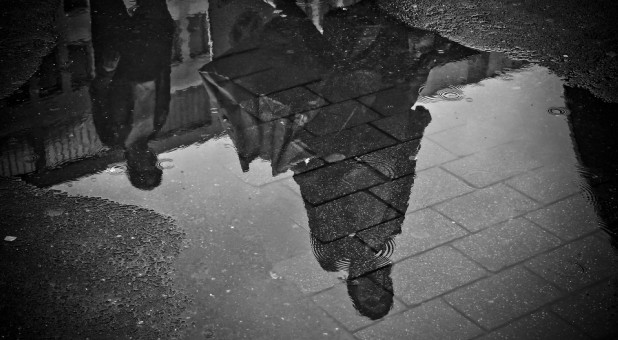‘It’s 2018, and Shame Is Dead’
A July 15 article on Hollywood Reporter, critiquing Sascha Baron Cohen’s new cable TV show, made this telling statement: “Back in 2000, when Da Ali G Show premiered, people still had a modicum of shame.” Ah yes, back in the good old days, those days of pristine purity, back in 2000! What an indictment on our rapidly deteriorating morals.
The author of this article, Daniel Fienberg, had this to say:
In Michelangelo terms: If the grotesques targeted by Sacha Baron Cohen in his genre-bending smash were perfect statues of ugliness, “shame” was the extraneous rock that covered them in their public personae, the temporary impediment Cohen had to carve away in his mission to reveal human nature.
It’s 2018, and shame is dead. The proudly deplorable parade through the street in their hateful finery and tweet their slurs and ignorance with pride, sometimes with anuran avatars and coy usernames, but just as often associated with their own faces and names. Your typical neo-Nazi need not hide as a block of marble when he can walk proudly in his native form.
Of course, shame has been dying for many years now—a slow and painful death.
Yet shame is far from dead. We are capable of descending much lower than most of us could imagine.
How, then, do we arouse our corporate conscience? How do we spark moral outrage when almost nothing outrages? How do we awaken our ethical sensitivities when we have become so hardened and insensitive?
And it’s not just a matter of almost nothing shaming us today. Almost nothing shocks us anymore.
From violence-glorifying graphics on the big screen to incessant headlines of perversion on our news feed to the latest appalling video on our cell phone. We have become accustomed to the extreme, to the twisted, to carnage and to gore.
Back in 2001, the morning of Sept. 11, a youth pastor in Seattle hurried over to a local high school to speak with kids arriving for their classes. He was sure they would be quite traumatized. To his shock, most were nonchalant. What they saw on TV looked like a bad video game or a poorly produced movie. What’s the big deal?
He was shocked by their lack of shock. And that was in 2001. Since then, the steady descent has continued unabated.
Pornography is celebrated. Sex-work is glorified. Nudity is normal. Profanity is no longer profane.
The apostle Paul summed things up very well 2,000 years ago: “[The Gentiles are] having their understanding darkened, excluded from the life of God through the ignorance that is within them, due to the hardness of their hearts. Being calloused they have given themselves over to sensuality for the practice of every kind of impurity with greediness” (Eph. 4:18-19).
We just need to change “they” to “we,” and it’s a perfect (and tragic) fit.
Do you remember when marriage really meant something? When couples didn’t freely live have kids out of wedlock? When no-fault divorce didn’t exist? When a wedding required a man and a woman?
Do you remember when porn movies were only accessible at obscure adult stores and movie theaters? When 13-year-olds (let alone 8-year-olds) never heard of it? When the verb “sexting” didn’t exist?
Do you remember when elders were treated with respect? When TV heroes weren’t murderous criminals? When daytime shows demonstrated moral restraint?
Are you even old enough to remember?
When I wrote Saving a Sick America, I was reflecting on how to convey the dramatic nature of our moral decline in a short and succinct fashion. I was struck by the idea of depicting a family in the suburbs of Pennsylvania in 1962, enjoying life together. The father falls asleep while watching Leave It to the Beaver with his wife and kids, only to wake up in 2017. Talk about culture shock!
Yet it was around 1962 that the British revivalist Leonard Ravenhill wrote, “The world has lost the power to blush over its vice; the Church has lost her power to weep over it.”
And that brings us back to the question of how we can awake our moral conscience when we are virtually comatose.
Surely, it is not primarily by trying to shame “the world”—by which I mean those who do not identify as Bible-believing, God-fearing people.
Rather, it is primarily by awakening our own consciences as believers, by rekindling our own sensitivities, by putting away all the unclean and defiling forms of entertainment that flood our lives, by spending time in prayerful meditation.
Then, as our lights shine brighter, we can illuminate and convict a darkened world. Let the awakening start with you and with me.















































